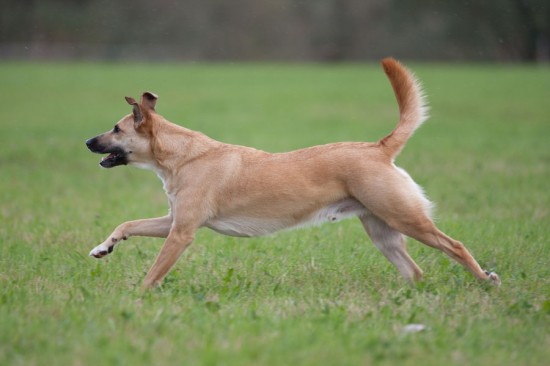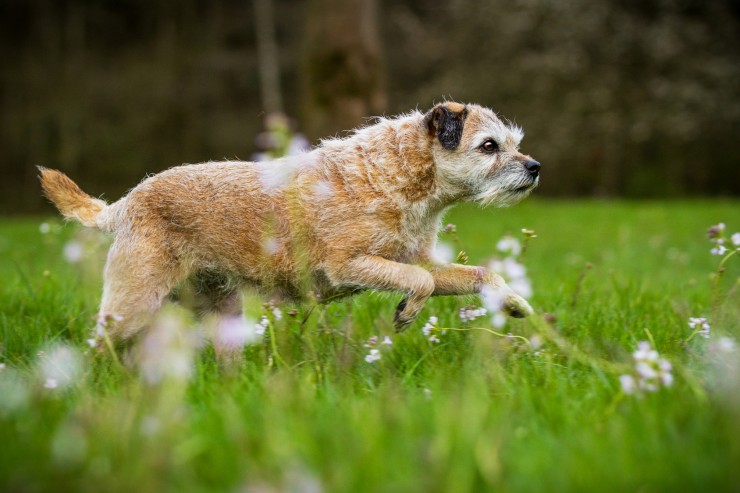

There can be few things more frustrating for the dog lover than owning a dog which will not reliably come back to you when called. This can cause a multitude of problems, from the simple inconvenience of having to spend a protracted period of time searching for and securing your dog at the end of a walk or anytime he gets out of the house or garden, to more serious issues including the potential dangers of running off onto the road or chasing and potentially hurting or even killing a smaller animal.
If your dog simply won’t return to you when called, escapes from the house or garden at every opportunity, or chases smaller animals such as cats and rabbits, you can have a real problem on your hands. While the short term solution is of course to keep your dog on a lead at all times, this does not account for the odd occasion when you might lose hold of the lead, or your dog pushes out through an open door or slips his collar- not to mention the restricted opportunities for exercise and play which will your dog will be able to enjoy.
Reaching the end of your tether? Then read on!
‘Recall’ refers to the practice of calling your dog to return to your side when running loose, and your dog’s compliance with this command. Learning to come when called is one of the most important commands to teach a puppy or young dog, and incorrect training when young is often the root cause of problems with recall and chasing in later life.
Your dog may be reluctant to come when called for a variety of different reasons- If you have been calling your dog for a protracted period of time, it is easy to become annoyed and exasperated and speak harshly to your dog when they do finally return to you. This creates a self perpetuating vicious circle, where the dog associates coming when called with punishment. Reward your dog with praise and a treat when he returns to you- however long it takes.
Also, if being recalled always indicates the end of play or your dog’s walk, your dog may be keen to drag it out as long as possible. Get into the habit of recalling your dog several times while out walking, just to say hi and give him a kind word. He will then learn to associate recall with praise, and not necessarily the end of the game.
Are you sure that your dog actually knows what is expected from him when you recall him? If your dog does not know what his recall command is or what he’s supposed to do when you use it, you cannot expect him to comply. Go back to basics with recall training, using a clear and memorable recall command, such as a one syllable word or as specific whistle. And remember, if your dog cannot hear your command, he cannot be expected to respond!
If your dog does not view you as the alpha, the leader in his ‘pack,’ he will be most unlikely to respond to commands from you, as in his mind, you’re not the boss of him! Make sure that your position as pack leader is well established, and work on your dog’s core training to ensure he understands his place in the pecking order!
It can be easy to inadvertently fall into the pattern of giving the recall command and then walking up to your dog wherever he stands- this is not recall, this is you waiting on your dog! When recalling your dog, your dog should be the one doing the work- you should stand still. Similarly, if your dog learns that when you attempt to recall him, you will chase him while he keeps bounding out of reach, he will come to view recall as a game, and completely miss the true meaning of the command. You’ll need to go back to basics on this one, starting with a new command word or signal for recall which your dog does not already have preconceived associations with play.
Some dogs are simply more predisposed to chasing behaviour and associated problems with recall than others. When caught up in the thrill of the hunt, many dogs do not even register the fact that their owner is frantically trying to attract their attention, as their inherent breeding instincts and genetic predisposition to hunt take over. This is particularly true with the group of dogs known as ‘sight hounds’- greyhounds, whippets, lurchers and similar dogs. Sight hounds have been specifically bred and trained for centuries to hunt for smaller prey, and as such they have an overwhelming urge to chase when they spot potential prey animals. Unfortunately, this cannot always be trained out of them, even when young. If you own a sight hound and are concerned about them potentially chasing and hurting or killing a smaller animal, you may simply have to manage your expectations rather than being able to train them for 100% recall- although of course training is also important.
Keep your dog on a lead at all times in suburban areas where cats or small wild animal may be nearby. When letting your dog off the lead for a run, make sure that the space you are using is fenced in or otherwise enclosed so that your dog has a limited range should they decide to take off.
If your dog has shown any evidence of chasing or hunting behaviour and you have any doubts at all about your ability to recall them, you should muzzle them at all times when off the lead for the protection of other animals. Even if you think there is no wildlife or smaller animals such as cats around, your dog might know better! They were, after all, bred to find them and hunt them.
Finally, it’s important to remember that muzzling is not a ‘get out of jail free’ card for your dog. Chasing behaviour is still potentially dangerous, even if your dog is muzzled. Your dog could manage to remove his muzzle, and could of course still cause injury to another animal while muzzled. Also, the stress and fear of being pursued can be incredibly damaging to smaller pets, which might injure themselves in their haste to get away- as well as potentially exacerbating any existing health conditions which the animal might have, such as arthritis, a heart condition or other health problems.
If you’ve addressed all of the potential recall issues mentioned above and you’re really not getting anywhere, it may be time to call in the experts. A professional dog trainer or behaviourist may well be able to help to train your dog- and you- towards a better relationship and consistent recall obedience.
 Side Effects Of Nsaid Arthritis Medications For Dogs
Side Effects Of N
Side Effects Of Nsaid Arthritis Medications For Dogs
Side Effects Of N
 What Does The Dog’s Gall Bladder Do?
What Does The Dog
What Does The Dog’s Gall Bladder Do?
What Does The Dog
 How To Avoid Skin Problems In The Mexican Hairless Dog
How To Avoid Skin
How To Avoid Skin Problems In The Mexican Hairless Dog
How To Avoid Skin
 A Brief History Of Mans Relationship With Dogs
A Brief History O
A Brief History Of Mans Relationship With Dogs
A Brief History O
 Tarantulas And Moulting
Tarantulas And Mo
Tarantulas And Moulting
Tarantulas And Mo
Copyright © 2005-2016 Pet Information All Rights Reserved
Contact us: www162date@outlook.com